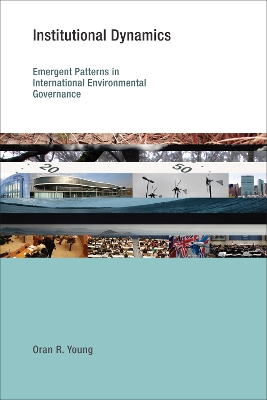Earth System Governance
2 total works
An analysis of patterns of change in international environmental regimes, with five case studies illustrating the patterns identified.
International environmental regimes-institutional arrangements that govern human-environmental interactions-are dynamic, changing continuously over time. Some regimes go from strength to strength, becoming more effective over the years, while others seem stymied from the beginning. Some regimes start strong, then decline; others are ineffective at first but become successful with the passage of time.
In Institutional Dynamics, Oran Young offers the first detailed analysis of these developmental trajectories. Understanding the emergent patterns in environmental governance and how they affect regime effectiveness, he argues, is an important part of solving environmental problems. Young proposes a framework for analyzing patterns of institutional change based on the alignment of internal, endogenous factors-which include flexibility, monitoring procedures, and funding mechanisms-with such external, exogenous factors as the attributes of environmental problems, the political and economic contexts, and technological innovations.
He offers five case studies of environmental regimes, governing environmental problems ranging from climate change to the protection of the Northern Fur Seal, each of which exemplifies one of the emergent patterns he has identified: progressive development, punctuated equilibrium, arrested development, diversion, and collapse.
While some insights from past research on governance remain valid in this setting, Young argues that we need new social capital to supplement mainstream regulatory approaches that feature rule making with an emphasis on compliance and enforcement. He explores the uses of goal setting as a governance strategy, the idea of principled governance, and the role of what is often called good governance in meeting the challenges of the Anthropocene. Drawing on his long experience operating on the science/policy frontier, Young calls for more effective collaboration between analysts and practitioners in creating and implementing governance systems capable of producing sustainable outcomes in a world of complex systems.

